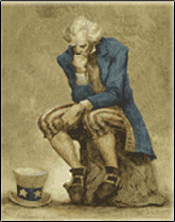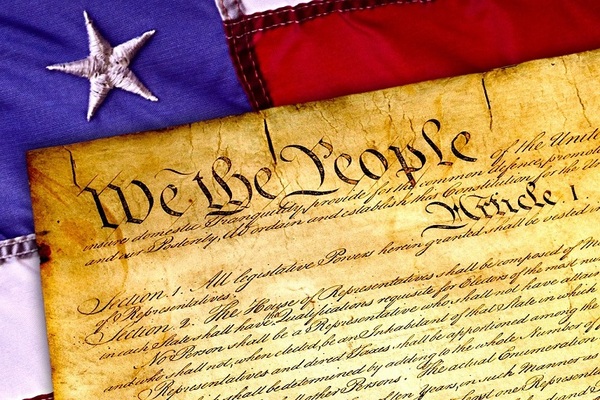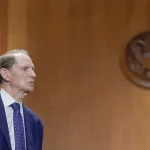
–>
February 3, 2023
I have seen a number of articles and essays that tell us that our Constitution had its origins from Cicero, Plato, and other thinkers and rulers of the Greek and Roman periods. They add the thinking of the “enlightenment period” of the eighteenth century that provided the wisdom and teaching that “man is the measure of all things.” Certainly, our Founders were well educated in the classics and read the current philosophers and their belief that we had evolved to new heights of thinking about government. It is a relatively easy search, however, of the records of the Constitutional Convention in 1787 and the influence of the Declaration of Independence and state constitutions to arrive at the literature that most affected their thinking.
‘); googletag.cmd.push(function () { googletag.display(‘div-gpt-ad-1609268089992-0’); }); }
The most quoted source in their arguments was the Bible and particularly the Torah or first five books of the Bible. Some will point out that Blackstone’s work on the law was quoted almost as often, however, it must be noted that his conclusions were very much based on the same Biblical standards. John Locke’s writings were important as well and he would rank into the top three of importance, but again his arguments were heavily influenced by the truth of scripture.
We don’t have a leader today who takes us back to the vantage point of the American Revolution and the origins of the Constitution. During the Civil War there was Abraham Lincoln, who addressed the evils of the hour but addressed them in the light of the Declaration of Independence and “the better angel of the American experiment for all.” We need leaders who talk about what made America great in the first place. There is the “master story of freedom” and it came from the Bible. Os Guinness in his book The Magna Carta of Humanity — Sinai’s Revolutionary Faith and The Future of Freedom quotes Rabbi Jonathan Sacks, who states that, “The book of Exodus and the first five books of the Hebrew Scriptures as a whole are nothing less than the Magna Carta of humanity.” He further states “as a republic of free and equal citizens held together not by hierarchy or power but by the moral bond of covenant.” As John Adams stated, “Our Constitution was made only for a moral and religious people. It is wholly inadequate to the government of any other.” A covenant (or Constitution) is certainly a foundational law; it provides a framework for freedom, and it truly begins with a pledge given at a certain moment in time. Freedom and trust are living truths. Unfortunately, we have lost our trust and faith in leaders on a national and local level. We have lost faith in institutions like the FBI, the Justice Department, academia, the medical profession, and so much more. The Pledge of Allegiance dies if it is ever allowed to be trite words in rote order.
 Daniel L. Dreisbach has written an insightful book entitled Reading the Bible with the Founding Fathers which reinforces our understanding of the human condition. He writes, “The Constitution’s basic design, defined by the separation of powers and checks and balances, reflected an awareness of original sin (Genesis 3) and the necessity to guard against the concentration or abuse of government powers vested in fallen human actors. Madison concurred, “that all men having power ought to be distrusted to a certain degree.” Humankind’s fallen nature was a familiar theme in James Madison’s writings and, more generally, in the political literature of the founding era. “…men are not angels,” Madison famously counseled in Federalist 51.
Daniel L. Dreisbach has written an insightful book entitled Reading the Bible with the Founding Fathers which reinforces our understanding of the human condition. He writes, “The Constitution’s basic design, defined by the separation of powers and checks and balances, reflected an awareness of original sin (Genesis 3) and the necessity to guard against the concentration or abuse of government powers vested in fallen human actors. Madison concurred, “that all men having power ought to be distrusted to a certain degree.” Humankind’s fallen nature was a familiar theme in James Madison’s writings and, more generally, in the political literature of the founding era. “…men are not angels,” Madison famously counseled in Federalist 51.
‘); googletag.cmd.push(function () { googletag.display(‘div-gpt-ad-1609270365559-0’); }); }
Our children are not taught about our nature, liberty, and how we need to protect it. The French Revolution in 1789 was the direct opposite of 1776. They attacked Christianity by killing thousands of nuns and priests and turning churches into “Temples of Reason.” The failure of this is self-evident today. Are we going to reform our country by going back to basic principles or are we on our way to 1789?
Recently Senator John Kennedy stumped a Biden judicial nominee for a federal judgeship with some basic questions. Senator Kennedy in his very Southern approach can be disarming and yet get to the heart of the matter. He asked Judge Charnelle Bjelkengren if she could tell him what Article V of the Constitution does? She replied that Article V is not coming to mind at the moment. How about Article I, he asked? Again she responded by saying neither is Article I. These are very basic parts of the Constitution, which is not very long.
What is interesting is that Article V was added to the Constitution just before ratification as a means for the states to rein in an out-of-control national government and bureaucracy. Not that we need that now! This is a good time, however, to understand the roots of our Constitution.
Os Guinness says it best, “Freedom requires virtue, virtue requires faith and faith requires freedom.” De we know what time it is? Become informed and take action.
Image: Pixabay
<!– if(page_width_onload <= 479) { document.write("
“); googletag.cmd.push(function() { googletag.display(‘div-gpt-ad-1345489840937-4’); }); } –> If you experience technical problems, please write to [email protected]
FOLLOW US ON
<!–
–>
<!– _qoptions={ qacct:”p-9bKF-NgTuSFM6″ }; ![]() –> <!—-> <!– var addthis_share = { email_template: “new_template” } –>
–> <!—-> <!– var addthis_share = { email_template: “new_template” } –>







